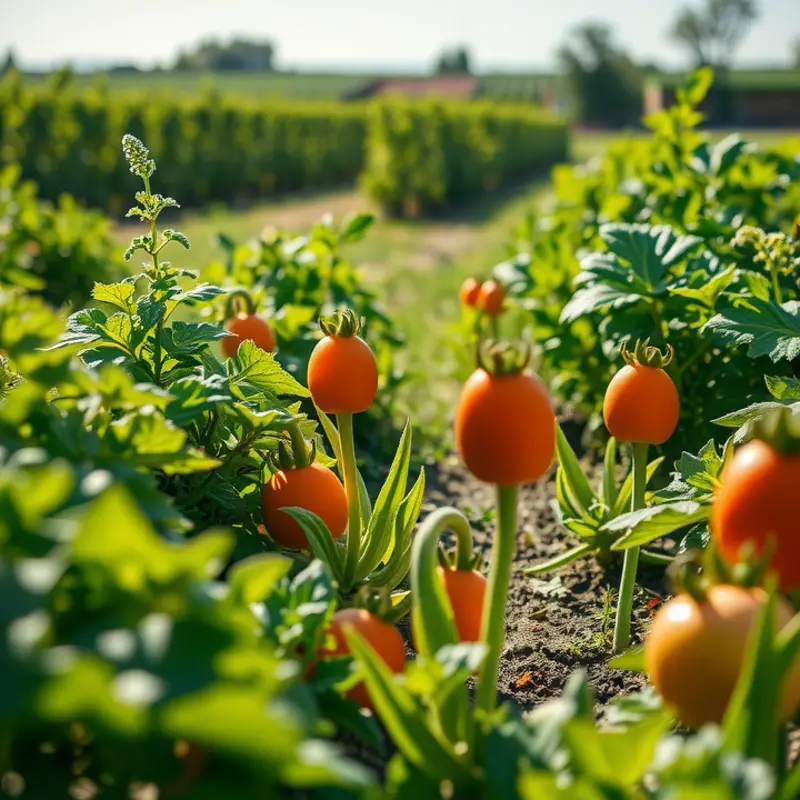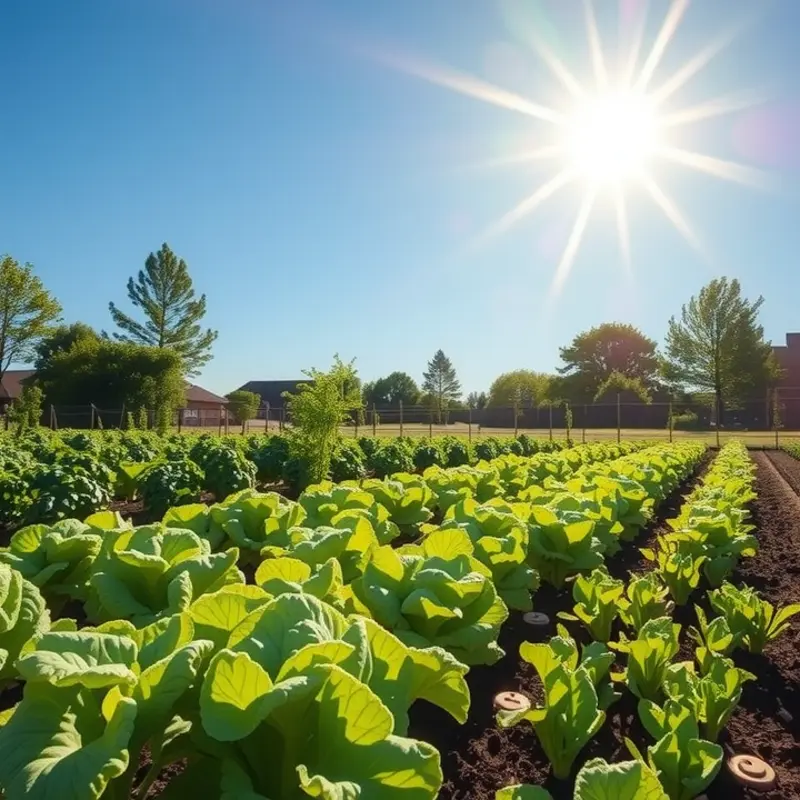Navigating the landscape of eco-friendly eating can be daunting, especially with the abundance of misleading information. Many well-meaning individuals are deterred from making sustainable food choices due to myths that fail to align with scientific understanding. By addressing these misconceptions, we can empower ourselves to make informed decisions and further our commitment to the planet. This insight provides clarity that helps eliminate confusion around eco-friendly eating.
Myth 1: Organic Food is Always Better for the Planet

The notion that organic food is automatically eco-friendly is appealing but not universally accurate. While organic farming boasts the absence of synthetic pesticides and fertilizers, the environmental impact is not always straightforwardly positive. Organic farming often requires more land to produce the same yield as conventional farming methods. This is due to the lower yields per hectare that organic practices typically produce. As a result, more deforestation or land conversion might be necessary, contributing to biodiversity loss and increased carbon emissions.
Moreover, water usage in organic farming isn’t necessarily better. Some organic practices can involve significant water consumption, especially when growing water-intensive crops. Organic farms might use methods like crop rotation and mulch to manage water sustainably, but this is not a universal practice. Without adequate management, water footprints can be quite substantial.
The use of fertilizers in organic farming is another complex issue. Organic farms use natural fertilizers, such as manure and compost, but these still release methane—a potent greenhouse gas. The logistics of transporting and applying these bulky substances can also lead to additional carbon emissions.
Context matters greatly when evaluating the environmental impact of organic foods. Local sourcing can significantly reduce the carbon footprint of a product. Transport is a major factor in the overall environmental cost of food. Buying locally grown produce, whether organic or conventional, minimizes the need for transportation and supports local ecosystems.
The growing practices themselves are another layer to consider. Some organic farms implement regenerative agriculture techniques, improving soil health and enhancing biodiversity. However, these practices are not exclusive to organic farming. Innovative conventional farms are adopting similar methods to balance productivity and environmental stewardship.
Seasonal availability is critical for eco-friendly eating. Consuming foods in season reduces the need for energy-intensive growth methods, such as heated greenhouses. Seasonal foods are often fresher, reducing the need for long-term storage that can increase energy use.
Making an informed choice requires peeling back the label implications and examining farming practices holistically. It’s essential to look beyond whether food is labeled organic or not, and consider the overall environmental context, which may include local growing conditions and sustainable practices. For those interested in integrating sustainable practices into their diets, exploring creative recipes that focus on local, seasonal ingredients can be a good start. Consider checking out this Mediterranean chickpea salad for a dish that combines fresh ingredients with minimal environmental impact.
Myth 2: All Plant-Based Diets are Eco-Friendly

The assumption that all plant-based diets are inherently eco-friendly overlooks key sustainability issues. While reducing meat consumption can significantly lower one’s carbon footprint, certain plant-based foods come with their own environmental costs. For instance, the production of avocados and almonds involves substantial water usage and carbon emissions.
In the case of avocados, their growing popularity has led to increased pressure on water resources, especially in regions prone to drought. Each kilogram of avocados requires almost 2,000 liters of water, making their footprint larger than many might assume. Similarly, almonds, primarily grown in water-scarce areas, demand about 10% of California’s total water supply annually. This reliance highlights the significant environmental impact of these otherwise healthy foods.
It’s crucial to consider transportation when evaluating the sustainability of our food choices. Foods that are not locally sourced often require long-distance travel, contributing further to their carbon footprint. Shipping avocados from regions like Mexico or South America to other parts of the world adds to the overall environmental cost.
These factors underscore the importance of having a balanced approach to plant-based diets. Instead of focusing solely on the label “plant-based,” we should prioritize consuming local and seasonal ingredients. By doing so, we naturally support smaller carbon footprints and contribute less to fossil fuel consumption.
To create an eco-friendly plant-based diet, encourage foods grown in climates that naturally support them. Local farmers’ markets can be great sources for discovering seasonal and sustainable produce options. Incorporating a variety of different plant foods can help diversify your diet while minimizing reliance on high-impact foods like avocados and almonds.
Understanding the broader context of food production can also be enhanced by exploring cuisines that utilize ingredients naturally suited to specific regions. For example, in the Mediterranean diet, ingredients like chickpeas are often highlighted because they thrive in similar climates to where they are consumed. For a flavorful and eco-conscious choice, consider a burst of freshness with Mediterranean chickpea salad.
Ultimately, eating sustainably isn’t just about cutting out meat. It involves thoughtful consideration of the environmental implications of every ingredient choice. Reassessing the global reach of food production and championing local agricultural efforts can help unify environmental goals with dietary preferences.
Final words
Understanding the truth behind eco-friendly eating enables individuals to make choices that genuinely reduce environmental impact. Debunking myths such as the automatic superiority of organic foods or all plant-based diets strengthens our community’s resolve to adopt sustainable practices. Armed with knowledge, each action taken—from local sourcing to mindful eating—contributes to a healthier planet. Every meal is an opportunity to align values with choices, encouraging others to follow suit. Together, we can create a shift towards better environmental practices in the realm of food consumption.








